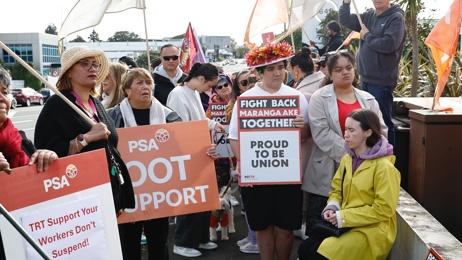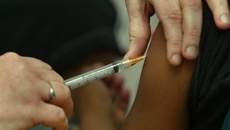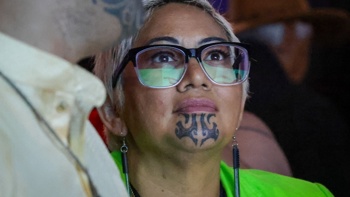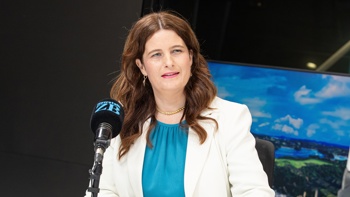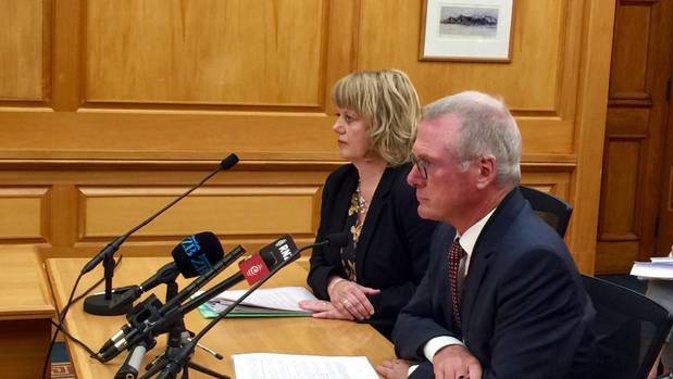
Women with advanced breast cancer appear to be the victims of "global postcode pricing" of treatments, National says.
The breast cancer drug Ibrance, also known as Palbociclib, is available to women in Malaysia at around $2000 per month. In New Zealand, where it is not funded by Pharmac, it costs around $6000 per month.
The health select committee is currently considering a petition signed by close to 34,000 people calling for Pharmac, the Government drug-buying agency, to fully fund Ibrance and another breast cancer drug called Kadcyla.
Ibrance, when taken in conjunction with other drugs, can inhibit the progress of breast cancer and potentially prolong the life of the patient, clinical trials show.
Pfizer, which makes Ibrance, and Roche, which makes Kadcyla, appeared before the committee today to push for faster consideration of their applications for the drugs to be fully funded and to answer questions from MPs.
Both companies offer deals for New Zealand women which cost about $66,000 for Ibrance and $72,000 for Kadcyla.
For most women this is a prohibitive cost. The select committee has previously been told that women seeking the drugs, described as "game-changers" , go to other countries such as Malaysia where they are cheaper.
Elise Kelly, Pfizer's Australasian oncology business lead, said the healthcare costs varied between countries due to a number of factors.
"Across different markets there's different approaches to funding, there's different healthcare systems," she told the committee.
National's health spokesman Michael Woodhouse said drug companies appeared to set prices according to "how much pain a country's economy can sustain".
Woodhouse questioned how Malaysia could get the drug 65 per cent cheaper than New Zealand.
"The fact that there's health tourism going on is a reflection on New Zealand, not Malaysia," he said.
Pharmac chairman Steve Maharey and chief executive Sarah Fitt also appeared at the select committee today.
Woodhouse told them he had been prepared to grill them "quite hard" on the reasons why women with breast cancer flew to Malaysia for treatment but said Pfizer had already given an insight into that.
"It does seem to be global postcode pricing," he said.
Australia announced earlier this week that Ibrance would be publicly funded there.
Australian patients currently pay more than $A55,000 a year for it but from May 1, it will cost about $A40.30 a month.
"These treatments improve lives. They reduce the burden of expensive medicines, saving patients and families money," Australian Health Minister Greg Hunt said.
Roche's director of access and public safety Angela Pantano told the committee today that Pharmac needed a bigger budget and its processes needed an independent inquiry.
"We believe Pharmac is underfunded to provide specialised medicines. People in New Zealand are dying while waiting for treatment," she said.
"Innovation comes with an inherent value. Other countries are willing to pay for innovation. We don't understand why the life of a person in Australia, the UK, Ireland or Canada for example, is considered more valuable than the life of a Kiwi."
Both Kelly and Pantano said a 12-week wait for the minutes of the Pharmacology and Therapeutic Advisory Committee to find out whether their applications had been successful was too long.
Maharey and Fitt said the minutes were actually a clinical investigation into the drugs and the term "minute" was not an accurate description of the work the committee carried out.
The committee's decision is due in May.
Take your Radio, Podcasts and Music with you



